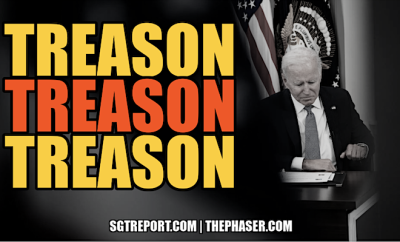 Zero Hedge
Zero Hedge
Economy
Bank Of England Accidentally E-mails Top-Secret Brexit Plan To Newspaper
from Zero Hedge.com:
The first rule of “Project Bookend” is that you don’t talk about “Project Bookend.”
In retrospect, maybe the first rule should have been “you don’t accidentally e-mail ‘Project Bookend’ to a news agency”, because as the Guardian reports, one of its editors opened his inbox and was surprised to find a message from the BOE’s Head of Press Jeremy Harrison outlining the UK financial market equivalent of the Manhattan project.
Project Bookend is a secret (or ‘was’ a secret) initiative undertaken by the BOE to study what the fallout might be from a potential ‘Brexit’, but if anyone asked what Sir Jon Cunliffe and a few senior staffers were up to, they were instructed to say that they were busy investigating “a broad range of European economic issues.”
Here’s more from The Guardian:
Bank of England officials are secretly researching the financial shocks that could hit Britain if there is a vote to leave the European Union in the forthcoming referendum.
The Bank blew its cover on Friday when it accidentally emailed details of the project – including how the bank intended to fend off any inquiries about its work – direct to the Guardian.
According to the confidential email, the press and most staff in Threadneedle Street must be kept in the dark about the work underway, which has been dubbed Project Bookend…
MPs are now likely to ask whether the Bank intended to inform parliament that a major review of Britain’s prospects outside the EU was being undertaken by the institution that acts as the UK’s main financial regulator. Carney is also likely to come under pressure within the Bank to reveal whether there are other undercover projects underway.
Officials are likely to have kept the project under wraps to avoid entering the highly charged debate around the EU referendum, which has jumped to the top of the political agenda since the Conservatives secured an overall majority. Many business leaders and pro-EU campaigners have warned that “Brexit” would hit British exports and damage the standing of the City of London.
The email indicates that a small group of senior staff are to examine the effect of a Brexit under the authority of Sir Jon Cunliffe, who as deputy director for financial stability has responsibility for monitoring the risk of another market crash.
Cunliffe also sits on the board of the City regulator, the Prudential Regulatory Authority.
The email from Cunliffe’s private secretary to four senior executives, was written on 21 May and forwarded by mistake to a Guardian editor by the Bank’s head of press, Jeremy Harrison.
It says: “Jon’s proposal, which he has asked me to highlight to you, is that no email is sent to James’s team or more broadly around the Bank about the project.”
It continues: “James can tell his team that he is working on a short-term project on European economics in International [division] which will last a couple of months. This will be in-depth work on a broad range of European economic issues. Ideally he would then say no more.”
* * *
In sum: Mark Carney accidentally pulled a Coeure who intentionally pulled a Yellen.
On the bright side for Carney, it looks like he’s making big strides when it comes to his goal of providing “greater transparency over [the BOE’s] decision-making.”












